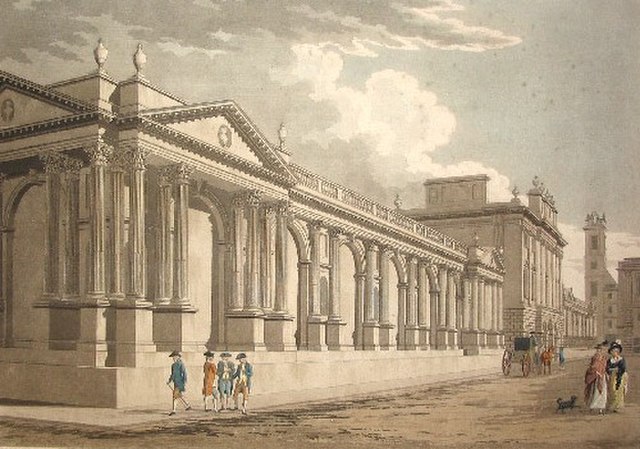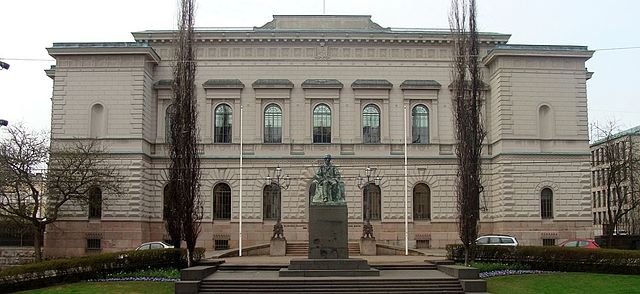The Imperial Bank of Persia was a British bank that operated as the central bank and bank of issue in Iran between 1889 and 1929. It was established in 1885 with a concession from the Persian government to Baron Julius De Reuter a German–Jewish banker and businessman who later became a Christian and a British subject.
Imperial Bank of Persia, Teheran, 1902
Imperial Bank of Persia, One Toman (1906), depicting Naser al-Din Shah Qajar
Central building of Imperial Bank, currently used by Tejarat Bank
A central bank, reserve bank, national bank, or monetary authority is an institution that manages the currency and monetary policy of a country or monetary union. In contrast to a commercial bank, a central bank possesses a monopoly on increasing the monetary base. Many central banks also have supervisory or regulatory powers to ensure the stability of commercial banks in their jurisdiction, to prevent bank runs, and in some cases also to enforce policies on financial consumer protection and against bank fraud, money laundering, or terrorism financing.
Walter Bagehot, influential 19th-century theorist of the economic role of central banks
Interior of the Llotja de Barcelona where the city's Taula de canvi was operated
The Bank of England in 1791
The Bank of Finland in Helsinki







